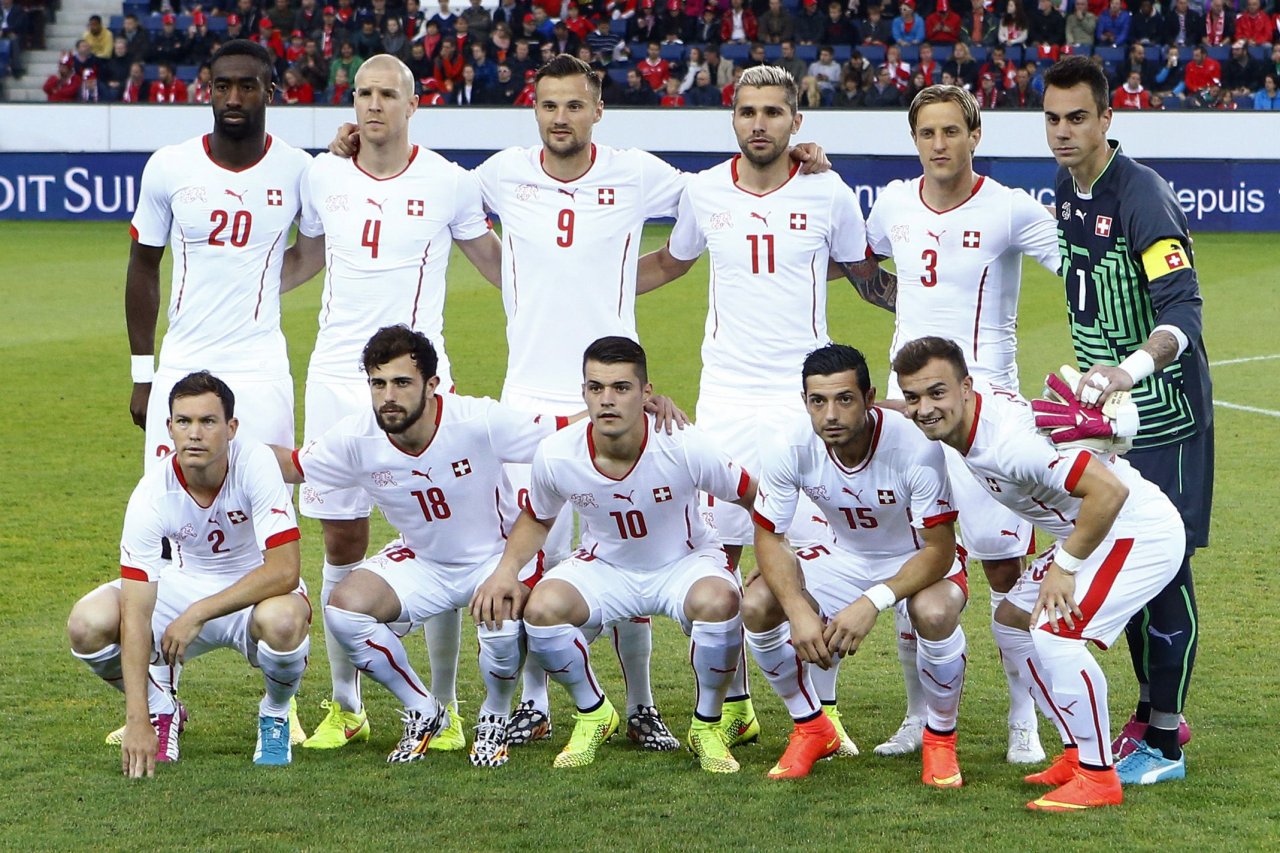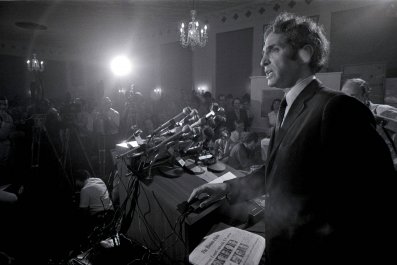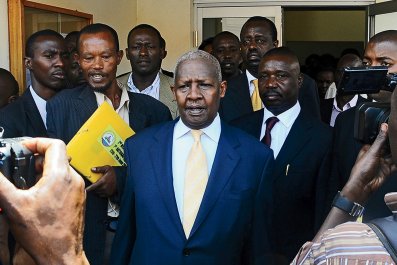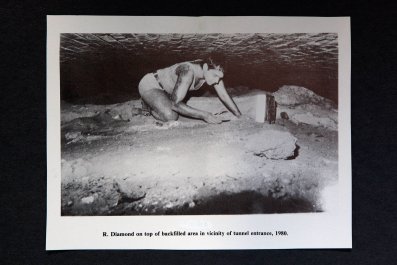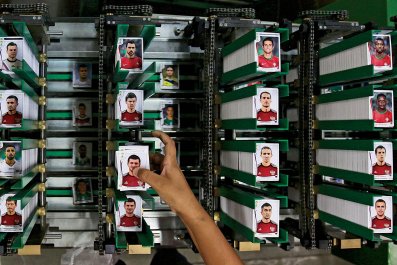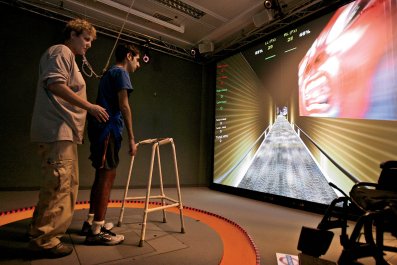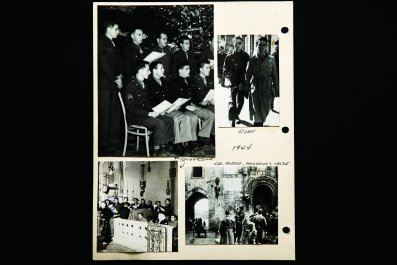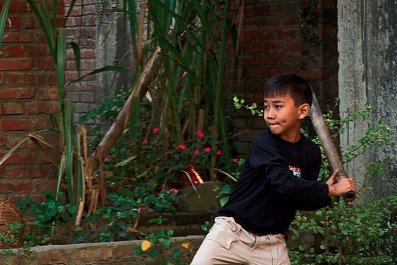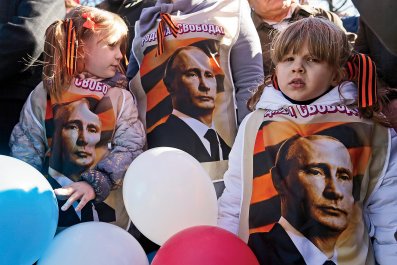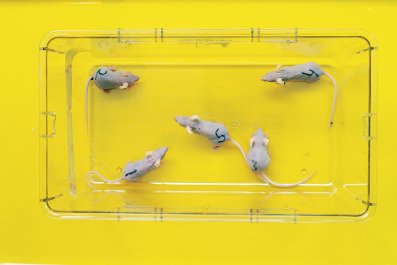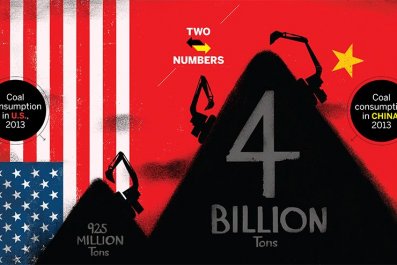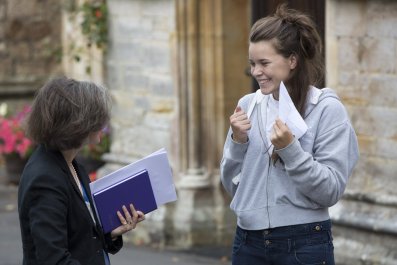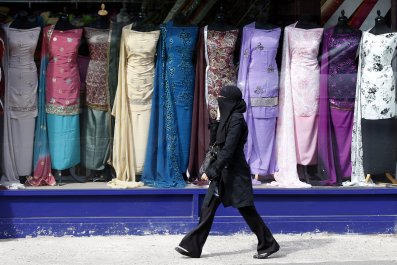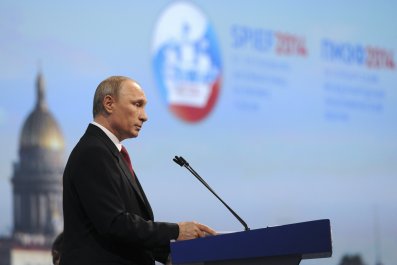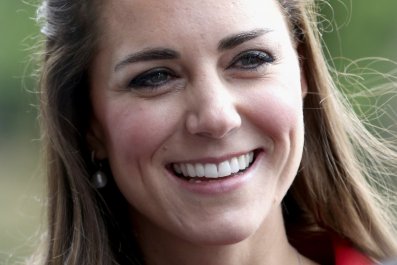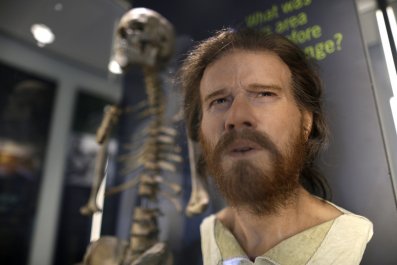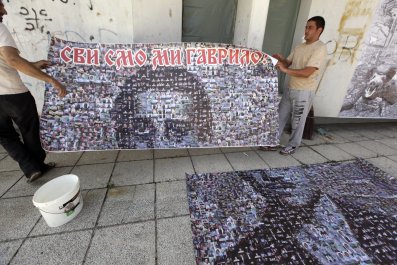A 40-minute boat ride across Lake Lucerne brought the Swiss national football team to the village of Weggis in late May, where they finished their final training sessions before flying to Brazil to compete in the soccer World Cup.
Surrounded only by cows and snow-capped mountains, the Park Weggis Hotel provided an oasis for the country's top players to focus on the all-important matches ahead.
But it took midfielder Valon Behrami, 29, a Lugano native, a bit of time to adapt to the more rigid, German-speaking part of his country. "When I come to Weggis, the first couple of days, I need to reset how I live. But I love this country."
With bleached blonde hair, a model for a girlfriend and a winning smile, Behrami brings something of a David-Beckham-like quality to the Swiss team. He is covered in tattoos. On his forearm, he has (among other things) the initials "R" for his father Ragip, "V" for his older sister Valentina, "H" for his mother Halime and "V" for Valon. He also has tattooes of a Kosovo flag, a Swiss flag, the name of his Italian partner, Elena Bonzanni, a butterfly and a heart – both of which made his five-year-old daughter, Sofia, very happy.
Behrami is proud to be playing for Switzerland in the World Cup, but like a majority of his fellow teammates, he also harbors national loyalties elsewhere. Indeed, the Swiss team is exceptional among other football teams for its cosmopolitan make-up.
In the locker room, they speak three or four tongues. During interviews, they seamlessly field questions in German, Italian, French, English and other languages. Of the 23-man squad, 15 are "secondos" – a name given to Swiss children whose parents immigrated to Switzerland from another country. More than half of them have dual nationality.
Paradoxically, the location in Canton Schwyz that the team selected to recharge their batteries is also the heartland of the Swiss People's Party (SVP), Switzerland's anti-immigration political party. In February, the party's wish came true when 50.3 percent of the country voted in favour of their referendum to cap the number of immigrants from the European Union.
But while the SVP intensifies their campaign against foreigners, the football team has been busily broadcasting a triumphant, multi-ethnic face of Switzerland. Indeed, some of the country's most talented players are from the very immigrant communities that the SVP has demonized the most.
Take Behrami. Born in Yugoslavia to Albanian parents, Behrami had a lot of energy as a child and running was his first love – he won four local titles. Behrami didn't begin playing soccer until he was 13, but he quickly proved himself to be a fast, aggressive player. "I had to decide between running and football, but it was a good decision . . . it changed my life."
As a child, he adhered to no special diet or exceedingly strict practice schedule. "I went on vacation like normal people. My parents are the ones who sacrificed . . . working all day, then taking me to practice. For my father, it was a big sacrifice. For me, it was just enjoyment, because I love to play football."
When he was five, his parents both lost their jobs – his father as a manager of a plastics company, his mother as a secretary. As a result, the family moved to Stabio, a village in the Italian part of Switzerland. However, when he was 11, Behrami and his family faced deportation and he was denied permission to stay by the Swiss migration authorities.
The young Behrami collected signatures from his friends and neighbours in order to try and gain support for his remaining in the country. Then, he stumbled across a sympathetic politician, who helped him and his family obtain the permission they needed. "One night, I was playing with the politician's son and the story came out," he said.
Behrami was 17 when he received his Swiss passport. He now lives in Naples, Italy, but keeps a home in Lugano where his parents still live. His family's story is just one example of the widespread struggle for integration that Albanian immigrants dealt with in the mid-1990s. Switzerland is home to around 200,000 people with roots in the former Yugoslavia, making them the third largest immigrant group behind Italians and Germans.
After Switzerland narrowly voted against joining the European Economic Area (that would become the European Union) in 1992, the SVP went after a new target: immigrants from Turkey and Yugoslavia, many of them refugees from the Yugoslavian civil war.
The SVP put up advertisements against Kosovo-Albanian refugees, including victims of the Serbian dictator Slobodan Milošević, with slogans such as: "Kosovan slashes Swiss man!" and "No Help Here for Kosovo-Albanians!" But those foreign children are all grown up now, and many have become a source of Swiss national pride.
The Swiss national soccer coach Ottmar Hitzfeld, 64, a German, has been instrumental in developing the Swiss team's culturally diverse pool of young talent and he led them to the 2010 World Cup, where they failed to advance despite defeating the eventual champions, Spain.
The Swiss were much more successful in the early years of the tournament, with quarter final runs in 1934, 1938 and 1954. In Brazil, they face Ecuador, France and Honduras before they can progress to the second round.
Behrami is just one of the many talented immigrants in Switzerland's soccer team. Xherdan Shaqiri is another Kosovo-born star of the Swiss team and there's Granit Xhaka (Albania), Gökhan Inler (Turkey), Josip Drmić (Croatia), Admir Mehmedi (Albania), Mario Gavranović (Bosnia), Haris Seferović (Bosnia), Gelson Fernandes (Cape Verde), Blerim Džemaili (Macedonia), Tranquillo Barnetta (Italy), Johan Djourou (Ivory Coast), Ricardo Rodriguez (Spain / Chile), Philippe Senderos (Serbia / Spain), and Diego Benaglio (Italy.)
The hybrid upbringings of Behrami and his teammates may turn out to be an advantage in the World Cup, an international competition that symbolizes fraternity and cross-border unity. But mixing together so many varied backgrounds and egos inevitably makes for challenging team dynamics.
"It's not so easy because there are a lot different mentalities, there's a lot of foreign players," says Behrami. "Keeping it like a family is one of the biggest challenges. There are so many different minds and cultures. But we are lucky. We have a lot of good guys."
Although Behrami doesn't often score, he scored a key goal for the Swiss national team against Turkey in the first leg of their World Cup 2006 qualifier play-off tie. He is often described as an "aggressive leader" because of his forceful style of play and because he can at times be over-aggressive. In the 2010 World Cup in South Africa, he was given a red card and sent off.
This will be the third World Cup for Behrami who, in addition to his current club, Napoli, has also played for Chiasso, Lugano, Verona, Lazio, West Ham and Fiorentina. He wants to continue playing as long as possible. "My physical condition is still good. It depends only on whether I get injured."


